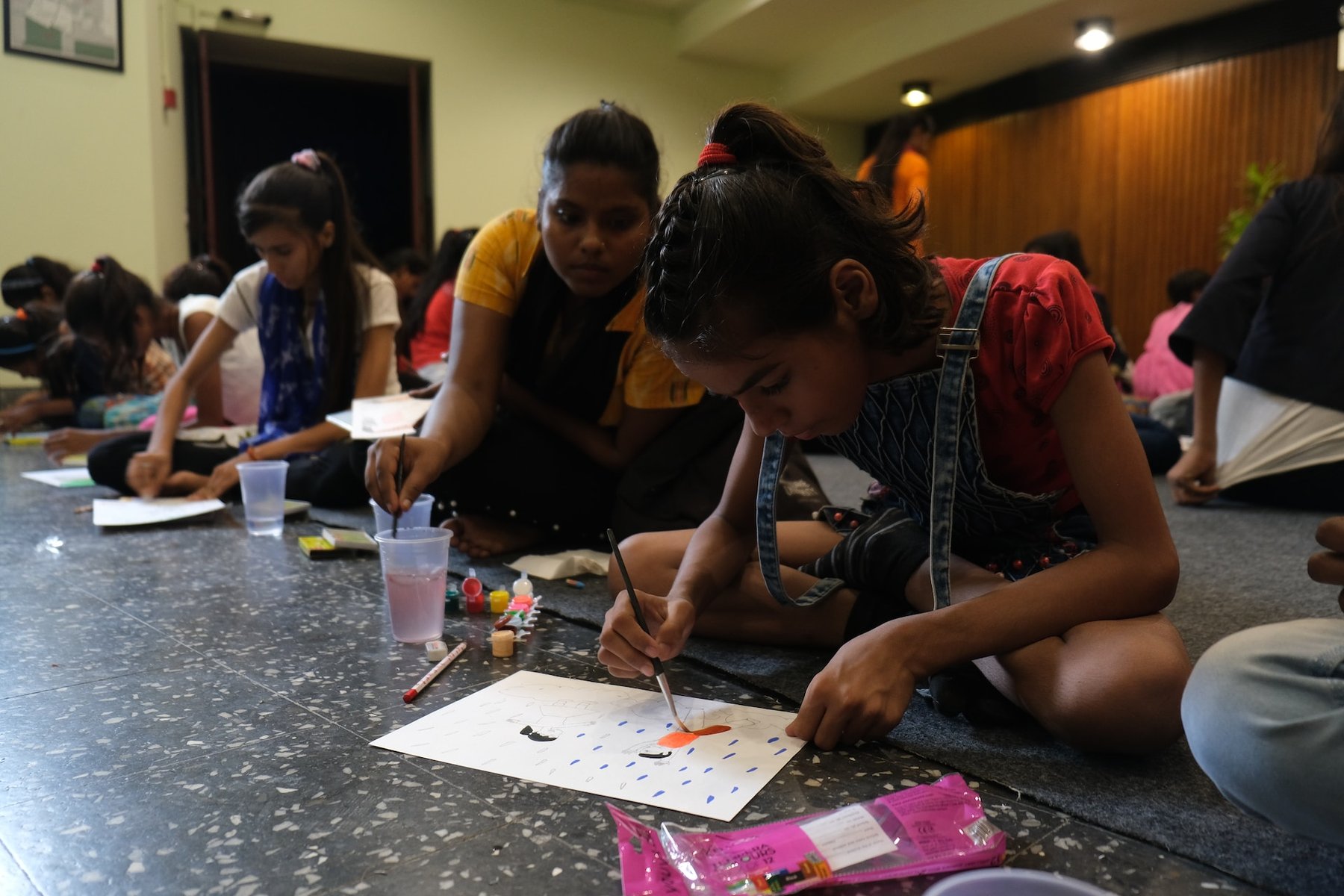In a world where technology takes center stage, it's easy to forget the importance of emotional intelligence. However, teaching emotional intelligence to children is more crucial now.
In this article, we will explore why emotional intelligence matters, how to teach it, and provide examples of its impact on children's lives.
What Is Emotional Intelligence?
Emotional intelligence (EI) refers to the ability to recognize, understand, and manage one's emotions while being empathetic toward others. It also includes social skills such as empathy, cooperation, motivation, and self-control.
Emotional inteligence could help people to be more successful in their relationships with friends or romantic partners and even at work.
The Benefits of Emotional Intelligence for Children
Emotional intelligence is a skill that can help children succeed in all aspects of life. It gives them the ability to understand their own feelings, as well as those around them. This will help them develop strong relationships with friends and family members, which can lead to better academic success.
Additionally, emotional intelligence can help prevent mental health issues such as anxiety or depression later on in life. Children who learn how to manage their emotions now are more likely to be able to cope with stress when they're older (and there will definitely be plenty).
In contrast, children who lack emotional intelligence tend to struggle with emotional regulation, communication, and decision-making.
By teaching children emotional intelligence, we can help them develop the tools they need to thrive both personally and socially.
How to Teach Emotional Intelligence to Children
Teaching emotional intelligence to children is a lot like teaching any other skill. You can do it in the same way you teach them to read or write, by modeling and practicing the behavior yourself.
Here are 6 ways you can help your child develop their emotional intelligence:
1. Model Emotional Regulation
Children learn from watching the adults in their lives, so it's important to model healthy emotional regulation. This means expressing your own emotions in appropriate ways and showing your child how to calm down when they're feeling upset.
Here are some tips to model emotional regulation with your young child:
-
Label Different Emotions: Help your child understand that there are different emotions and it's okay to feel them. Label the emotions you - and your child - experience, and talk about what they might look like, feel like and why they are happening.
-
Respond Consistently: When your child acts out or becomes upset, try to stay calm and consistent. If you can show that you are a steady presence when they need help managing their emotions, it will help them feel more in control.
-
Be a Good Listener: Listening is a powerful tool when modeling emotional regulation. Encourage your child to express themselves and listen attentively without judgment. It is essential to pay attention to your child's body language and tone of voice.
-
Practice Calming Techniques Together: Practice breathing techniques or mindfulness exercises during playtime or any other regular activity. This helps teach children how to calm down when they feel big emotions bubbling up.
-
Take Breaks When Needed: Encourage your child to take breaks from challenging tasks, emotions or situations when they need them. They can take a few moments to breathe and reset, learn more about themselves and better understand the emotions they are feeling.
Overall, modeling emotional regulation for your child is a continuous process, and it takes time and patience. By helping your child regulate their emotions, you can support their emotional well-being, build their confidence and develop their self-awareness.
2. Practice Empathy
Ask your child how they would feel in someone else's shoes. For example, if they see someone crying, ask them how they think that person feels and how they can help them feel better.
Feelings Flash Cards is a great game that teaches kids to share and learn about all kinds of emotions.
3. Use Books and Media to Teach Emotional Intelligence
There are many children's books and TV shows that teach emotional intelligence, such as Daniel Tiger's Neighborhood, which focuses on social and emotional learning for young children.
4. Engage in Creative Activities
Art, music, and other creative activities can help children express their emotions in healthy ways. Encourage your child to draw or paint how they're feeling, or to write a song about their emotions.
5. Encourage Problem-Solving
Help your child find solutions to problems that are causing them distress. This will help them develop resilience and problem-solving skills that will serve them well in the future.
6. Practice Mindfulness
Teach your child mindfulness exercises, such as deep breathing or body scans. This will help them learn to regulate their emotions and reduce stress.
Remember, developing emotional intelligence takes time and practice.
Be patient with your child and celebrate their progress along the way. With your guidance and support, they will develop the skills they need to navigate their emotions and build healthy relationships.
6 Activities to Develop Emotional Intelligence in Children
1. Role-Playing
Role-playing is a great way to help kids develop emotional intelligence. When you're playing with your child, use role reversal to encourage them to try on different emotions and see how they feel in different situations.
For example, if your child is having trouble sharing toys with other children, ask them what they would do if they were the one who was being left out of the game. Then have them act out their answer by taking on the role of "the kid who doesn't get picked."
This will allow them to experience firsthand what it feels like when someone else doesn't want them around and makes them feel sad or angry about that fact. Afterward, talk about how those feelings make sense.
TIPS: 30 role-playing ideas you could do with your kids.
2. Mindfulness Exercises
Teach your child mindfulness exercises, such as deep breathing or body scans. This will help them learn to regulate their emotions and reduce stress.
3. Emotion Charades Game
Play a game of emotional charades with your child. Take turns acting out different emotions and have the other person guess what the emotion is. This will help your child recognize different emotions and develop empathy.
4. Emotion Matching Exercises
Print out pictures of different emotions and have a story about the emotion. This helps their ability to recognize emotions in others.
5. Gratitude Journal
Teach your children gratitude and encourage your child to keep a gratitude journal, where they can write down things they are thankful for each day.
This will help them become more self-aware and develop a positive outlook and become more resilient.
6. Storytelling
Storytelling is a skill that could be developed and as a tool it could be used to powerful effect.
Tell your child stories that focus on emotional intelligence, such as stories about empathy, kindness, and emotional regulation. This will help them develop a deeper understanding of emotions and how to manage them.
5 Common Mistakes to Avoid When Teaching Emotional Intelligence
There are a few common mistakes parents make when trying to teach emotional intelligence. If you're not careful, you could be making one of them right now.
1. Dismissing or Invalidating Their Emotions
One of the most important aspects of developing emotional intelligence is learning to acknowledge and express one's own emotions. If a child's emotions are dismissed or invalidated, they may become confused or feel like their feelings don't matter.
2. Labeling Emotions as "Good" Or "Bad"
Emotions are not inherently good or bad, they are simply a natural part of the human experience. When children are taught to label certain emotions as "bad," they may feel ashamed or guilty for experiencing them.
3. Focusing Too Much on Consequences
While it's important for children to understand that their actions have consequences, focusing too much on punishment or reward can undermine the development of emotional intelligence.
This could lead children to focus on avoiding punishment rather than understanding their own emotions and the emotions of others.
4. Ignoring the Importance of Empathy
Empathy is a key component of emotional intelligence, and it's important for children to learn how to put themselves in someone else's shoes. If parents or teachers don't model empathy, children may struggle to develop this skill.
5. Relying Too Much on Technology
While there are many great apps and tools that can help children develop emotional intelligence, relying too much on technology can undermine the importance of face-to-face interaction and emotional connection.
Emotional intelligence is a skill that can be developed over time with practice and guidance. Assuming that some children are simply "born" with emotional intelligence can lead to a lack of focus on developing these skills.
Conclusion
Teaching emotional intelligence to children is crucial for their development - it equips them to navigate social situations and forge better relationships, and empowers them to make sound decisions regarding their words.
As parents or caregivers, we play an important part in fostering emotional intelligence in children via modeling healthy emotional expressions, encouraging open communication, and providing a safe environment.
Remember that building emotional intelligence is a gradual process that requires patience, persistence, and a commitment to our children's emotional well-being. By doing so, we help shape emotionally resilient individuals who are equipped to handle life's challenges.







